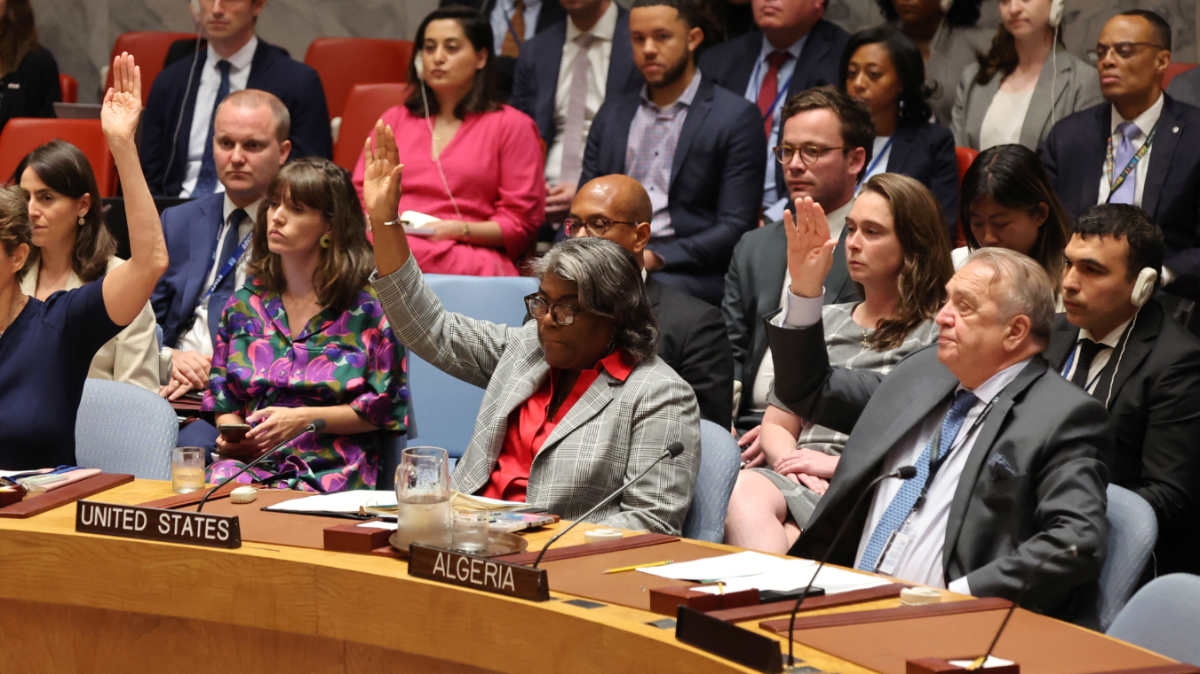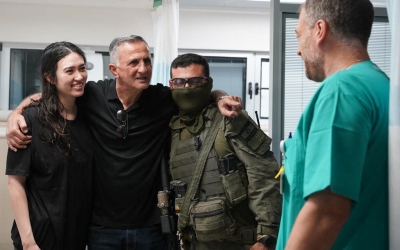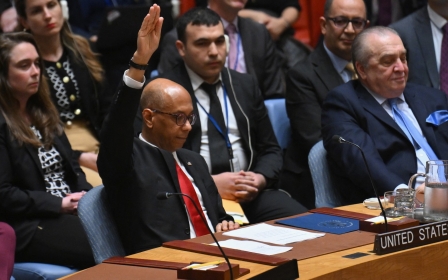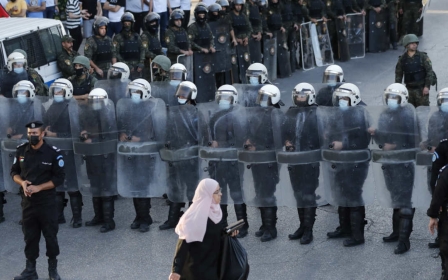UN Security Council passes US-backed resolution calling for Gaza ceasefire

The UN Security Council passed a US-drafted resolution on Monday that backs Washington's Gaza ceasefire plan and calls on Hamas to accept it.
The resolution, which was backed by 14 nations except Russia, welcomed the truce and hostage release proposal announced on 31 May by President Joe Biden, and urged "both parties to fully implement its terms without delay and without condition".
Unlike earlier drafts, the resolution states that Israel has "accepted" the ceasefire proposal and calls on Hamas to do the same.
"This proposal is the best opportunity we have right now to bring at least a temporary halt to this fighting, to be able to get more assistance in, get hostages released," deputy US ambassador to the UN Robert Wood said.
"We want to put pressure to Hamas to accept this deal. So far it hasn't accepted this deal. That's why we to have this resolution, because we're on a cusp of doing something really, really important."
New MEE newsletter: Jerusalem Dispatch
Sign up to get the latest insights and analysis on Israel-Palestine, alongside Turkey Unpacked and other MEE newsletters
Hamas welcomed the resolution after the vote, saying it is ready to cooperate with mediators over implementing the principles of the plan.
Israel criticised the proposal last week for advocating an end to the war in exchange for the release of the captives, a stance that Prime Minister Benjamin Netanyahu's government publicly opposed.
On 31 May, Biden detailed what he said was a three-phase Israeli proposal for a hostage exchange and eventual permanent cessation of hostilities in Gaza.
But achieving a ceasefire has been elusive for the US and mediators Qatar and Egypt.
Hamas and Israel sceptical of plan
Hamas has met the proposal with scepticism. Middle East Eye has reported that the text of the proposal received by Hamas does not guarantee a permanent cessation of hostilities as described by Biden in his speech.
And despite US claims that the proposal Biden unveiled was backed by Israel, Netanyahu has repeatedly said that Israel intends to continue fighting in Gaza until it eliminates Hamas's governing and military capabilities.
Despite enduring eight months of Israeli bombardment, Hamas continues to put fighters in the field and reconstitute itself in areas of Gaza Israel has abandoned.

Hamas is unlikely to agree to a hostage deal if it does not guarantee that there will be a permanent ceasefire in Gaza after.
US Secretary of State Antony Blinken, travelling in the region on Monday, blamed Hamas for the failure to reach a ceasefire in Gaza.
After meeting Egyptian President Abdel Fattah el-Sisi in Cairo, Blinken said: "My message to governments throughout the region, to people throughout the region, is - if you want a ceasefire, press Hamas to say 'yes'."
The US has used its veto power at the UN to shield Israel from censure.
The US has cast three vetoes against calls for a ceasefire. Separately, Washington also blocked an amendment calling for a ceasefire that Russia had tried including on a Security Council resolution in December.
Amid tensions between the US and Israel over the latter's conduct of its war on Gaza, the US has more recently signalled its frustration with Israel at the international body.
In March, the US abstained from a vote at the Security Council calling for an "immediate ceasefire" in Gaza during the Muslim holy month of Ramadan.
The Biden administration is at odds with Israel on a postwar plan for Gaza. For months, CIA director Bill Burns has been leading US efforts to secure a ceasefire deal between Israel and Hamas that could end the war and defuse regional tensions.
Middle East Eye delivers independent and unrivalled coverage and analysis of the Middle East, North Africa and beyond. To learn more about republishing this content and the associated fees, please fill out this form. More about MEE can be found here.




